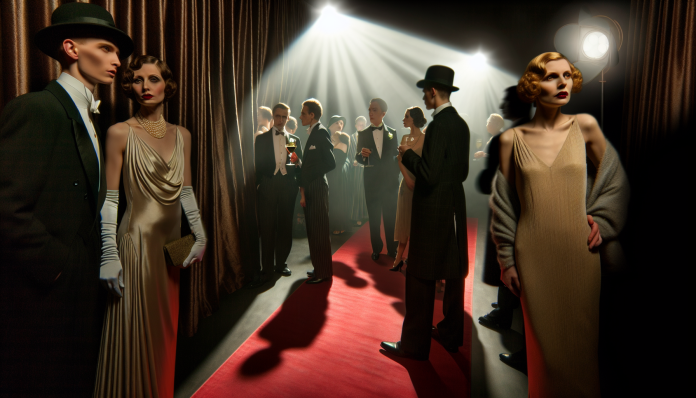A Star in the Spotlight
Errol Flynn, the swashbuckling star of classic Hollywood films like Captain Blood and The Adventures of Robin Hood, wasn’t just known for his charming good looks and adventurous roles; he was equally renowned for his tumultuous love life. Born in 1909 and rising to fame in the 1930s and 1940s, Flynn’s escapades often overshadowed his cinematic contributions, shaping public perception of both the man and the era. At a time when strict moral codes governed Hollywood, particularly through the Hays Code, Flynn’s lifestyle was a provocative challenge to societal norms, making him an enduring icon of rebellion.
The Scandal Unleashed
The scandal that would ultimately define Flynn’s reputation unfolded in 1942 when he was accused of statutory rape by two teenage girls, a scandal that would send shockwaves across America. At the age of 33, Flynn was implicated in a case that painted him as a reckless playboy taking advantage of his fame. The two girls, who were just 17 at the time, alleged that Flynn had provided them with alcohol and engaged in sexual encounters at his home.
Key events transpired during a highly publicized trial, where Flynn’s status and charisma drew significant media attention. He claimed innocence, asserting that he was the victim of a conspiracy aimed at dragging his name through the mud. “I am a lover of women, not a criminal,” he famously declared, a statement that reflected not only his personal ethos but also the cavalier attitudes toward sexuality prevalent among many in Hollywood at the time.
Public sentiment was sharply divided. Many fans rallied in Flynn’s support, with countless women sending letters proclaiming their love and loyalty. Still, Flynn’s glamorous lifestyle, characterized by debauchery and notorious parties, fueled the perception that he was more mischief-maker than martyr.
Moral and Cultural Analysis
Society’s reaction to the scandal was emblematic of the era’s conflicting views on masculinity and morality. In 1940s America, while the notion of ‘the Hollywood leading man’ was steeped in seduction and charm, it also had to navigate the rigid frameworks of propriety enforced by the Hays Code. The backlash against Flynn was significant, yet his established star power helped mitigate the consequences. Though he faced public scrutiny, he was ultimately acquitted, allowing him to return to the silver screen.
Today, the narrative surrounding Flynn would likely be scrutinized under far different standards. Modern social values place immense emphasis on consent, accountability, and the power dynamics present in intimate relationships. The same behavior that garnered excitement in the 1940s could be perceived as predatory, and Flynn might be just as likely to face serious repercussions in today’s #MeToo landscape.
In retrospect, one can see that while Flynn’s charm became synonymous with the carefree spirit of 20th-century Hollywood, it also exposed the myriad ways in which fame enables forgiveness—an idea that remains relevant even in present-day discussions about celebrity and accountability.
The controversial love life of Errol Flynn remains an intriguing lens through which to examine shifts in societal values and the enduring conflict between celebrity allure and moral responsibility. In an age where sexuality and consent are critically analyzed, Flynn’s story serves as a reminder of how far public consciousness has evolved, even as we navigate the complicated legacies of our icons.

